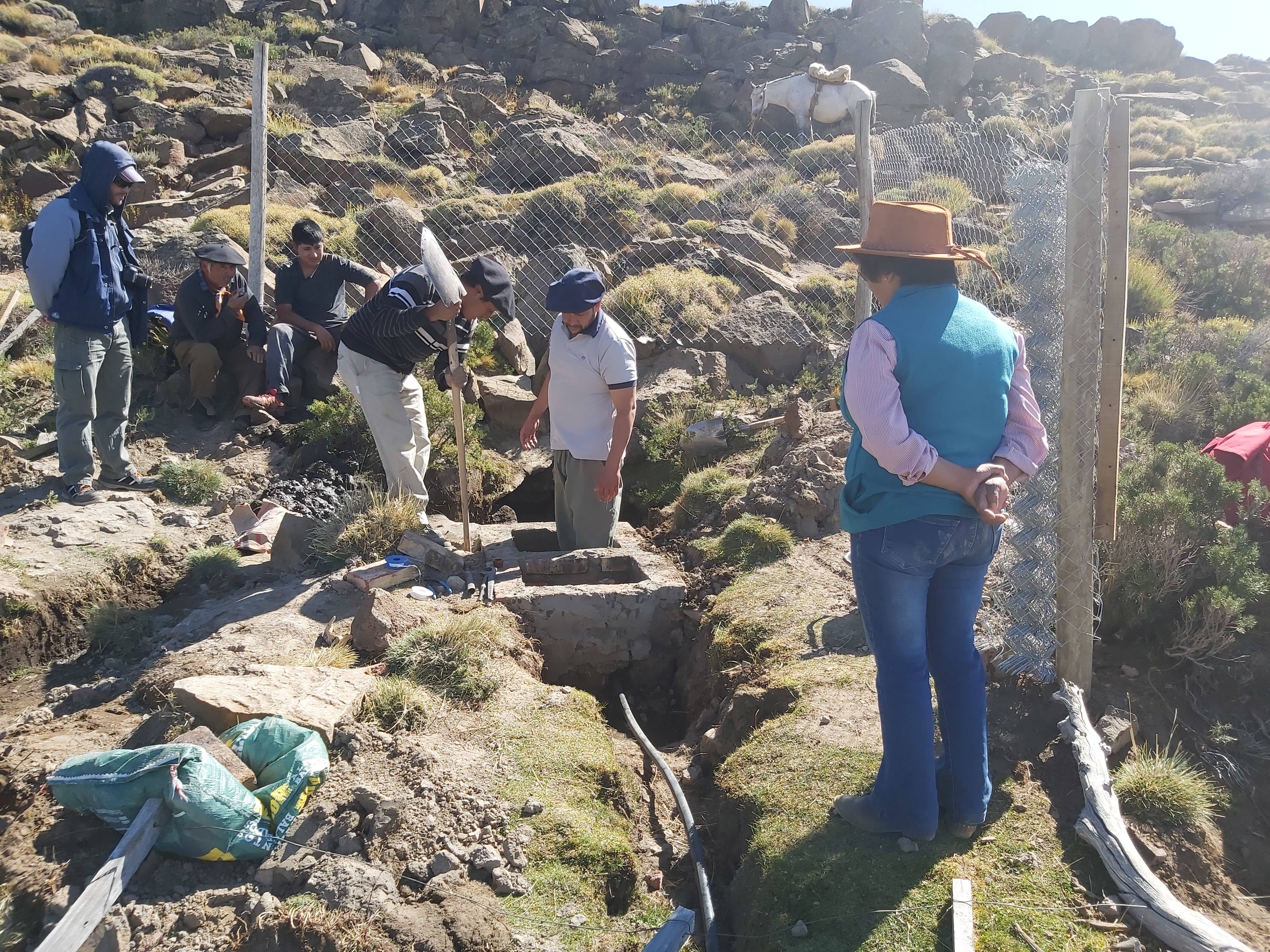Capture, conduction and efficient use of water to adapt to climate change in Zapala

The reduction and/or disappearance of water sources is one of the main effects of climate change in arid and semi-arid areas, such as Patagonia Argentina, thus affecting the production and welfare of family farmers.
For this reason, one of the main objectives of the FONTAGRO project "Adaptation to climate change in extensive family livestock farming" is the efficient use of water, generating innovations in water collection, storage and distribution, in order to adapt production systems to the consequences of climate change.
Access to water for animal consumption, family consumption and irrigation on farms in the central area of the Province of Neuquén, Argentina, is limited for many livestock farming families, since their springs, of different characteristics, which they have used for years, have dried up due to the extreme drought suffered in the area.
The collection of new springs, in a more stable and efficient way, as well as the storage and conduction of the water they emanate, represents an alternative to cover the water needs throughout the year, which translates into better quality of life and generate greater production.
The Rural Extension Agency of INTA Zapala, with financing from the FONTAGRO project, trained producers and installed three water catchment, transport and storage systems in different demonstration fields in the town of Zapala and surrounding areas.
Two water catchment systems were carried out in the veranadas of the demonstration fields of the families of Marta Claleo and Mario Carrasco and a well shoe was installed in the veranada of the family of the demonstrator producer Dominga Garcia.
This video contains images and testimonies of the benefited producers, who demonstrate to other producers in the region that it is possible to improve the catchment, storage and conduction systems to improve the quality of life and adapt to climate change.




